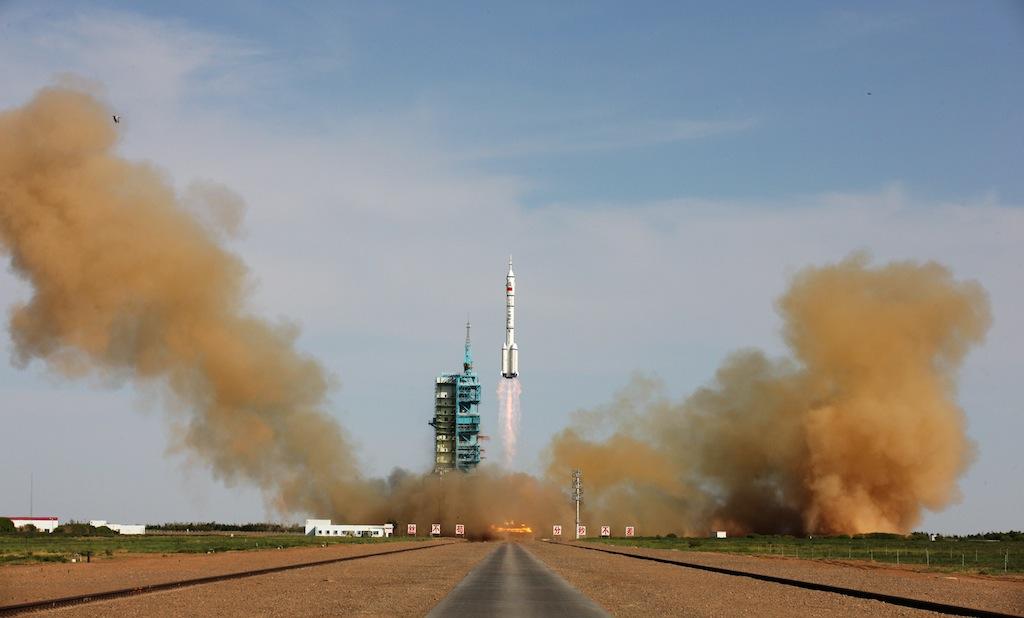China’s Shenzhou-10 blasts off into space (VIDEO)
The Long March-2F rocket carrying China’s Shenzhou-10 spacecraft blasts off at Jiuquan Satellite Launch Center on June 11, 2013 in Jiuquan, Gansu Province of China.
China's Shenzhou-10 spacecraft blasted off from the Gobi desert at 5:38 p.m. local time Tuesday, carrying three astronauts on a 15-day "sacred" mission to the nation's prototype space station.
The launch is China's fifth successful manned mission and the longest to date.
"You are the pride of the Chinese people, and this mission is both glorious and sacred," Chinese President Xi Jinping said, according to state media.
State television aired the launch live, with children wearing the clothes of China's ethnic minorities giving the three astronauts — Nie Haisheng, Zhang Xiaoguang and Wang Yaping — an appropriately nationalistic sendoff.
The Shenzhou-10 will dock with Tiangong 1, a trial space station module. There, it will conduct experiments towards China's goal of a manned space station by 2020.
Wang, China's second ever female astronaut, will for the first time give students a science lecture from space.
Xinhua, China's state news agency, reported Shenzhou-10's launch with pride.
"With 10 astronauts and six spacecraft launched into space in a decade, China is speeding up on the path of exploration and building a home for Chinese in the galaxy," the agency wrote, pointing out that all three astronauts are Communist Party members.
"If the country has its own space station, Chinese astronauts, who are Party members, might set up a Party branch up there," Yang Liwei, China's first man in space, told Xinhua.
China's space program has made significant improvements in the past decade, but the US and Russia remain the world's dominant space powers. China has yet to conduct a manned or unmanned moon landing, and it could be years before that happens.
Every day, reporters and producers at The World are hard at work bringing you human-centered news from across the globe. But we can’t do it without you. We need your support to ensure we can continue this work for another year.
Make a gift today, and you’ll help us unlock a matching gift of $67,000!
